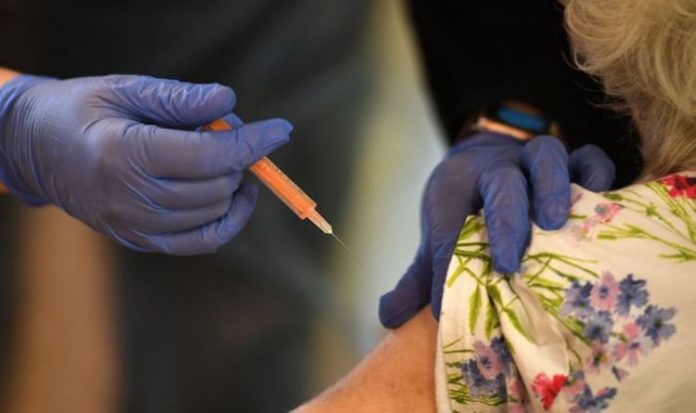Hundreds of researchers, technicians and clinical staff at Oxford University and trial sites in multiple countries have worked tirelessly to get their jab across the finish line as quickly as possible. Dr Maheshi Ramasamy and Dr Amy Flaxman are typically modest researchers – keen to talk about their work and pay tribute to their colleagues – but it is clear they have given their all to the high pressure project for the past year.
Dr Ramasamy, who monitored volunteers in the clinical trials, said: “I’m used to hard work and working long hours at the hospital, but this has been completely different.“We’ve had a lot of personal responsibility for things. You can’t hand something over, go home and assume somebody else will do it.
“Many of us have been on call 24/7 for the last 10-11 months, however long it’s been since we first started going.”
Staff came forward from across the University to lend a hand after the March lockdown stopped many non-Covid studies in their tracks.
“Things like diabetes or cancer research all stopped during the first lockdown, and we had lots of people who were desperate to help who came from other disciplines,” Dr Ramasamy said.
Even so, the work was relentless. She added: “There are so many hurdles. First it’s manufacturing the vaccine, then it’s getting the vaccine to the UK, then it’s recruiting your participants.
“We’ve never really been able to say: ‘We’re done now, we can have a bit of a break’, because there’s always the next thing that needs doing.
“Even though the vaccine has now had emergency approval in the UK, we’ve now got to put together the data to allow it to be approved in other countries, and the trial is ongoing.
“So we’ve still got analyses that are outstanding, questions to be asked.”
Dr Flaxman, who works on the laboratory side of the research, said: “I keep thinking ‘maybe in six months’ time it will calm down a little bit’. But I’ve probably been thinking that for the last six months.
“As soon as the blood sample is available we’re running the assays and turning around data. We want the answers for the safety, the efficacy and the immunology as soon as possible. We want to know if it works.”
A huge milestone came when the phase three efficacy results were announced in November.
Dr Flaxman said: “It was particularly poignant for me because we’d had a really busy week in the lab before. The samples were coming in from Brazil and South Africa and other places.
“I heard that news first thing on Monday morning just as I was coming into the lab and it was a fantastic result.
“It was just what we needed to hear right then – that our vaccine was indeed working.”
For Dr Ramasamy, the moment when the first volunteer was vaccinated as the trials kicked off is one she will never forget.
She said: “That just seemed like an incredible achievement to have got to the stage where we’ve gone from this theoretical vaccine, seeing it was safe in animals, to then actually [inoculating] our very first volunteer.
“The efficacy was also obviously incredibly exciting but for me a real feeling of satisfaction was when we had MHRA emergency approval.
“It was like, ‘Yes, we can get our vaccine into people’s arms and we can actually start to make a difference in this horrific pandemic’. That was a real moment for me.”
However, the team has not yet been able to enjoy a drink in the pub together to celebrate the good news – as even they are not immune to social distancing rules.
Dr Flaxman said: “You have to have a Zoom celebration and bring your own snacks.”







